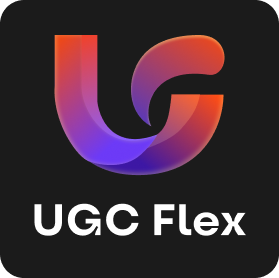The growing creator economy has sparked intense debate between affiliate marketing vs UGC sponsorships as primary revenue channels for digital entrepreneurs. Data reveals significant income potential in both models, with top UGC creators earning six figures through brand partnerships while successful affiliate marketers generate substantial passive income from commission-based structures.
Key Takeaways
- UGC sponsorships offer higher upfront payments while affiliate marketing provides long-term passive income potential
- Affiliate marketing delivers clearer ROI metrics through trackable links and performance-based compensation
- User-generated content creates stronger audience connections through authenticity and personal storytelling
- The most effective approach combines both strategies, leveraging UGC’s authenticity with affiliate tracking
- Your ideal strategy depends on your goals: immediate sales (affiliate) versus brand loyalty building (UGC)
Understanding Earning Potential
The financial landscape for content creators has dramatically expanded, with both UGC and affiliate marketing offering substantial income opportunities. Let’s examine how each model generates revenue for creators.
UGC creators benefit from diverse revenue streams that include views, tips, subscriptions, and brand collaborations with virtually no ceiling on earnings. Popular creators can generate significant income from brand deals and merchandise sales, especially those who’ve built dedicated followings. According to TikTok monetization strategies, top UGC creators can earn five to six figures annually through brand partnerships alone.
Affiliate marketers operate under a different model, earning commissions on each sale generated through their unique tracking links. These commission rates typically range from 5-30% depending on the industry and product price point. Income distribution among affiliate marketers shows significant variation. A study by Squad.App reveals approximately 40% earn below $20,000 annually while about 6% earn over $2 million per year, highlighting the potential for massive scalability.
Both models offer paths to substantial earnings but with different risk profiles. UGC sponsorships typically provide more predictable upfront payments, while affiliate marketing strategies can create passive income streams that grow over time. The choice between user-generated content marketing and affiliate marketing often depends on a creator’s content style, audience engagement, and financial goals.
Compensation Models and ROI for Brands
From the brand perspective, these two marketing approaches offer distinctly different value propositions and measurement frameworks. Understanding these differences is crucial for optimizing marketing budgets.
Affiliate marketing operates on a strictly performance-based compensation model—brands only pay when specific actions occur, typically sales or qualified leads. This model provides inherent protection against wasted marketing spend, as payment directly correlates with results. Brands can accurately calculate affiliate marketing ROI through trackable links that monitor conversions, click-through rates, and customer acquisition costs.
UGC sponsorships typically involve flat fees or retainer payments regardless of performance metrics. While this requires upfront investment without guaranteed returns, UGC creates valuable brand assets and customer trust that can drive long-term value. According to Billo, UGC campaign benefits extend beyond immediate sales to include enhanced brand perception and consumer trust, which can significantly boost authenticity compared to traditional advertising.
The cost-effectiveness of each approach depends largely on brand goals. For companies focused on immediate sales and measurable outcomes, affiliate marketing provides clear ROI accountability. Brands prioritizing awareness, customer relationships, and authentic engagement may find greater long-term value in UGC sponsorships despite more challenging ROI measurement.
Content Control and Audience Engagement
The content creation process differs significantly between these two marketing approaches, with major implications for audience connection and brand perception.
UGC creators maintain substantial creative control, allowing them to craft content that authentically represents their personal brand while incorporating sponsor requirements. This authenticity drives significantly higher engagement rates through likes, shares, and comments. TapeReal reports that UGC typically generates 29% higher web conversions and 4x higher click-through rates compared to non-UGC content, demonstrating the power of genuine, relatable content.
Affiliate marketers must align their content with the products they promote and follow brand guidelines more strictly. While this can limit creative freedom, it ensures consistent brand messaging across marketing channels. Affiliate content excels at reaching targeted audiences through niche publications and influencers who have already built trust with specific demographic segments.
The fundamental difference lies in relationship building: UGC excels at creating community and personal connections, while affiliate marketing focuses primarily on driving conversions. This distinction is especially important when considering psychological aspects of marketing like social proof and trust building.
Consider these key engagement differences between the two approaches:
- UGC creates stronger emotional connections through personal storytelling
- Affiliate content often provides more detailed product information and comparisons
- UGC performs better for brand awareness and perception
- Affiliate marketing typically drives higher direct conversion rates
- UGC generates more social sharing and organic reach
Integration Strategy: Combining Both Approaches
Rather than viewing these as competing strategies, forward-thinking brands are discovering the power of integration. Combining UGC sponsorships and affiliate marketing creates a synergistic approach that maximizes the strengths of each model.
Integrating UGC and affiliate marketing allows brands to encourage affiliates to generate authentic content like reviews, unboxing videos, and tutorials while maintaining performance tracking. This approach leverages the authenticity of user-generated content with the measurable results of affiliate marketing, creating a powerful hybrid model. As TapeReal notes, this combination creates multiple touchpoints throughout the customer journey, from initial awareness to purchase decision.
Successful integration requires thoughtful planning and awareness of digital trends. Brands should consider these implementation strategies:
- Provide affiliates with resources to create authentic UGC
- Incorporate affiliate links within UGC campaigns
- Develop graduated partnership models that evolve from UGC to affiliate relationships
- Create collaborative campaigns between UGC creators and established affiliates
- Track and analyze performance across both channels to optimize allocation
This integrated approach recognizes that customer journeys aren’t linear—they involve multiple touchpoints and influences before conversion occurs. By building engaged communities through authentic UGC while capturing conversions through affiliate tracking, brands create comprehensive marketing ecosystems that drive both immediate sales and long-term loyalty.
Choosing the Right Strategy for Your Goals
The ideal marketing strategy depends heavily on your specific business objectives and target audience characteristics. Making an informed choice requires analyzing both your short and long-term goals.
Affiliate marketing strategies excel at driving immediate sales with clear performance tracking. This approach offers excellent scalability as you can continually add affiliates without significantly increasing management complexity. For brands with limited marketing budgets or strict ROI requirements, the performance-based compensation model minimizes financial risk. According to Squad.App, affiliate marketing vs brand ambassadors generally provides more predictable and measurable results, though with less emotional connection.
UGC sponsorships excel at building brand loyalty and creating authentic connections with potential customers. This approach generates content that audiences perceive as more trustworthy and relatable, making it especially effective for building brand awareness and positive associations. Brands focusing on long-term growth, community building, or entering competitive markets may find UGC creator earnings provide better value despite higher upfront costs.
When making your decision, analyze these factors:
- Your current sales cycle length and complexity
- The importance of brand perception versus immediate conversions
- Your target audience’s content consumption preferences
- Your internal capacity for relationship management and content oversight
- Your budget flexibility and ROI measurement requirements
Many successful businesses are discovering that the most effective approach combines elements of both strategies. By pricing UGC services strategically alongside affiliate commissions, brands can create marketing ecosystems that drive both immediate conversions and long-term loyalty. UGC and affiliate marketing trends increasingly point toward integration rather than isolation, with hybrid models showing superior overall performance.
For creators looking to maximize earnings, understanding both models opens more partnership opportunities. Successful UGC creators can incorporate affiliate links to add performance-based revenue streams, while affiliates can adopt UGC techniques to increase engagement and conversion rates. This flexible approach allows for adapting to emerging monetization niches and changing market conditions.
Take Your Creator Career to the Next Level with UGC Flex
Ready to transform your content creation into a sustainable career? UGC Flex helps creators like you turn your content into recurring revenue streams. Our comprehensive program provides everything you need to succeed in the competitive creator economy.
UGC Flex’s cohort includes free courses covering essential skills including content creation techniques, contract negotiations, and advanced video editing. Our platform features gamified learning, leaderboards, and access to exclusive communities of top creators and industry experts who can help you pitch your services effectively.
Don’t leave your creator career to chance. Join our next cohort and gain the skills, connections, and strategies needed to thrive in both UGC sponsorships and affiliate marketing.

